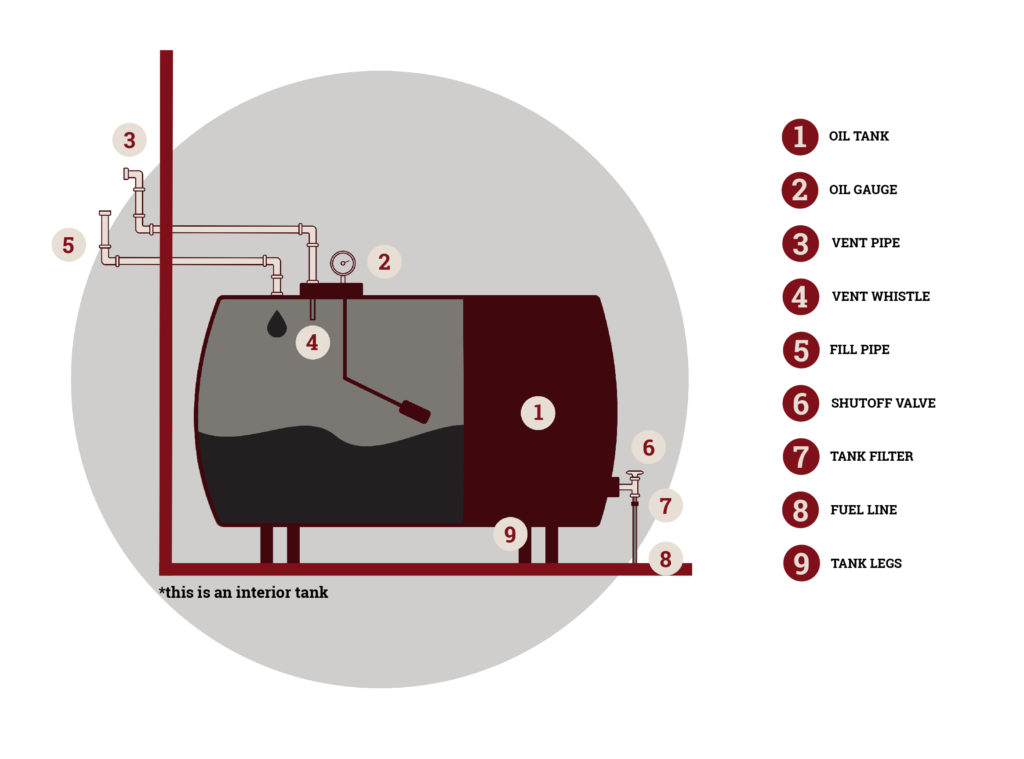While oil heat is a very safe solution for home heating, you can never be too safe when it comes to any major system in your home. Heating oil will not ignite, explode, or create life threatening fumes itself but there are a few things you can do to make sure your furnace and oil tank are working optimally and safely.
Oil heat furnaces are generally very safe to have in your home, since heating oil can’t ignite or explode unless it is heated to very high temperatures, which your furnace does not reach. However, due to the nature of how furnaces create heat, via combustion, carbon monoxide gases can occur as a natural by-product of that process. Soot buildup and broken parts can aid in allowing that gas to leak into your home. Although carbon monoxide itself does not have a scent, the soot buildup or maintenance issues that often cause release of carbon monoxide from a furnace can often be seen and smelled as smoke, indicating it is time to have a technician take a look at your equipment as soon as possible. A properly maintained and cleaned furnace has very little chance of exposing your home to carbon monoxide, so making sure your furnace is inspected and cleaned yearly and any maintenance is done in a timely manner will keep you and your family safe. Installing a carbon monoxide detector is also a must in any home. You can read our blog on those here.
Furnace Oil Technicians are licenced to install and maintain your home heating system. You should never try to or have an unlicensed person install or repair any part of your heating system. Hire a professional with the proper training for your own safety. Oil Heat installations are governed under a code called the B-139 installation code. This code is reviewed and updated regularly. Having an unlicensed person install or repair your oil tank may result in a void warranty and insurance may not cover you for any losses or damages.
With your oil tank you always want to be sure to check your tank for leaks. Oil leaks can be very expensive to properly clean up so preventing a leak is the best way to avoid a costly maintenance and cleaning bill. You can find lots of information on how to prevent or deal with an oil tank leak in our blog here.
Pictured below is a basic residential Furnace Oil Tank set up. Although there are many types of tanks, the items listed below are standard in most installs.

Oil heating furnaces and tanks are a great option to heat many Nova Scotian homes and proper maintenance and cleaning will make sure that your home is safe and sound with your heating equipment options. Learn more about our heating equipment and technicians here.